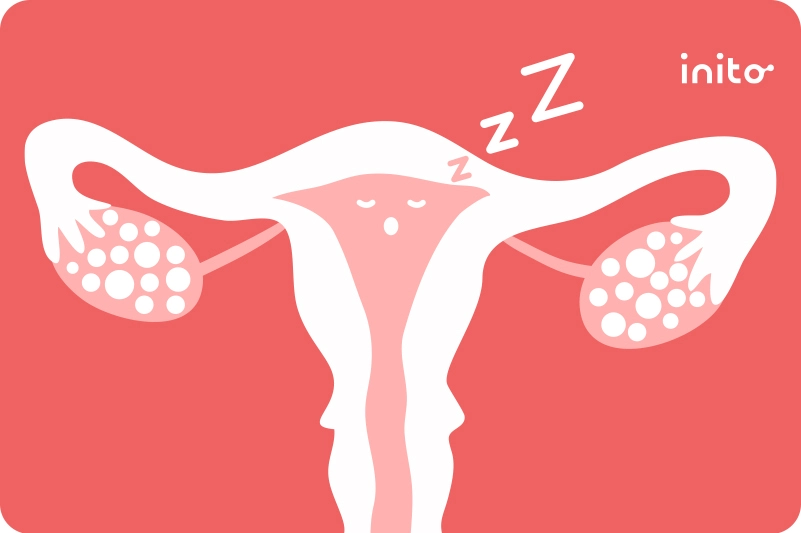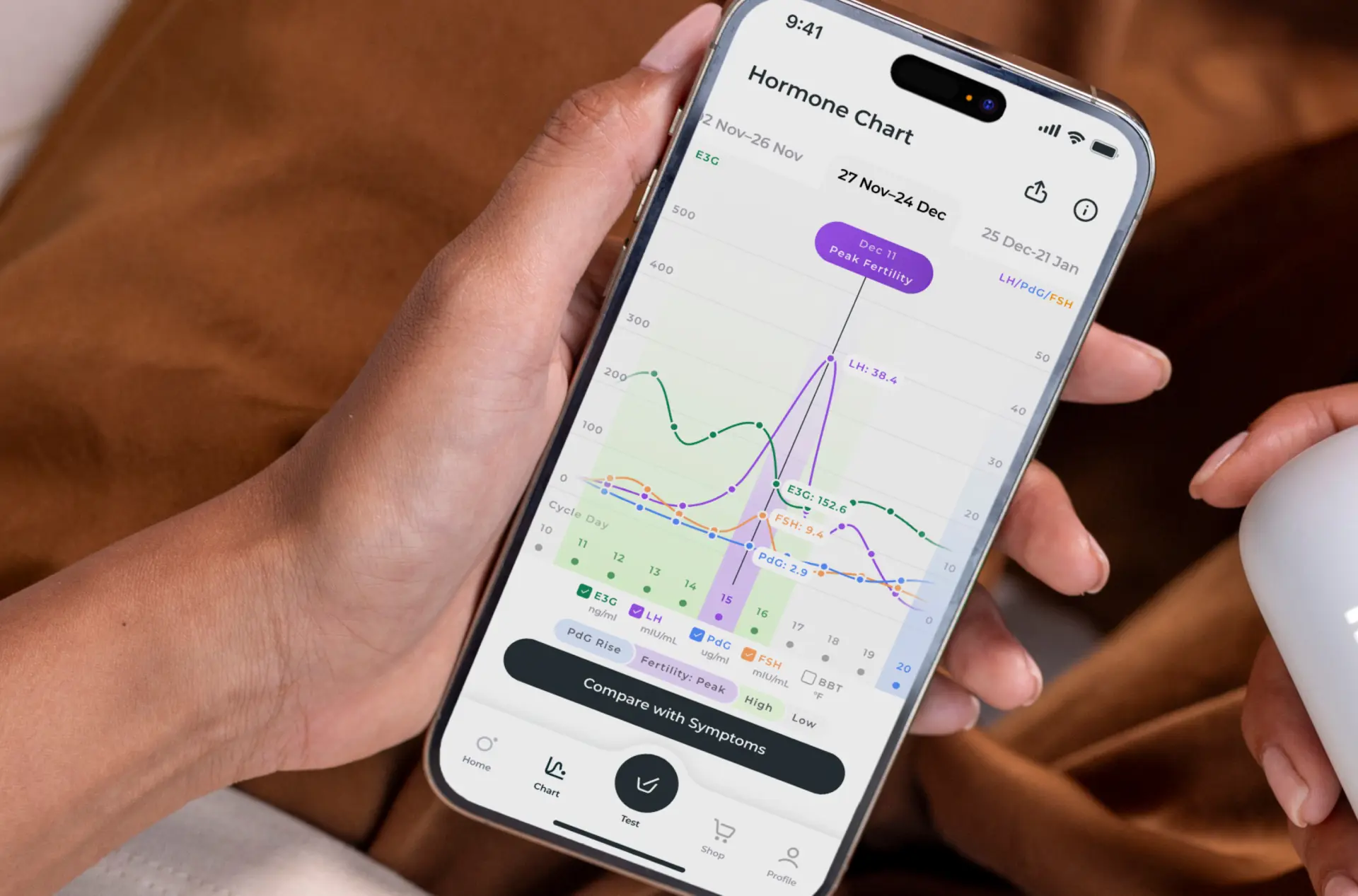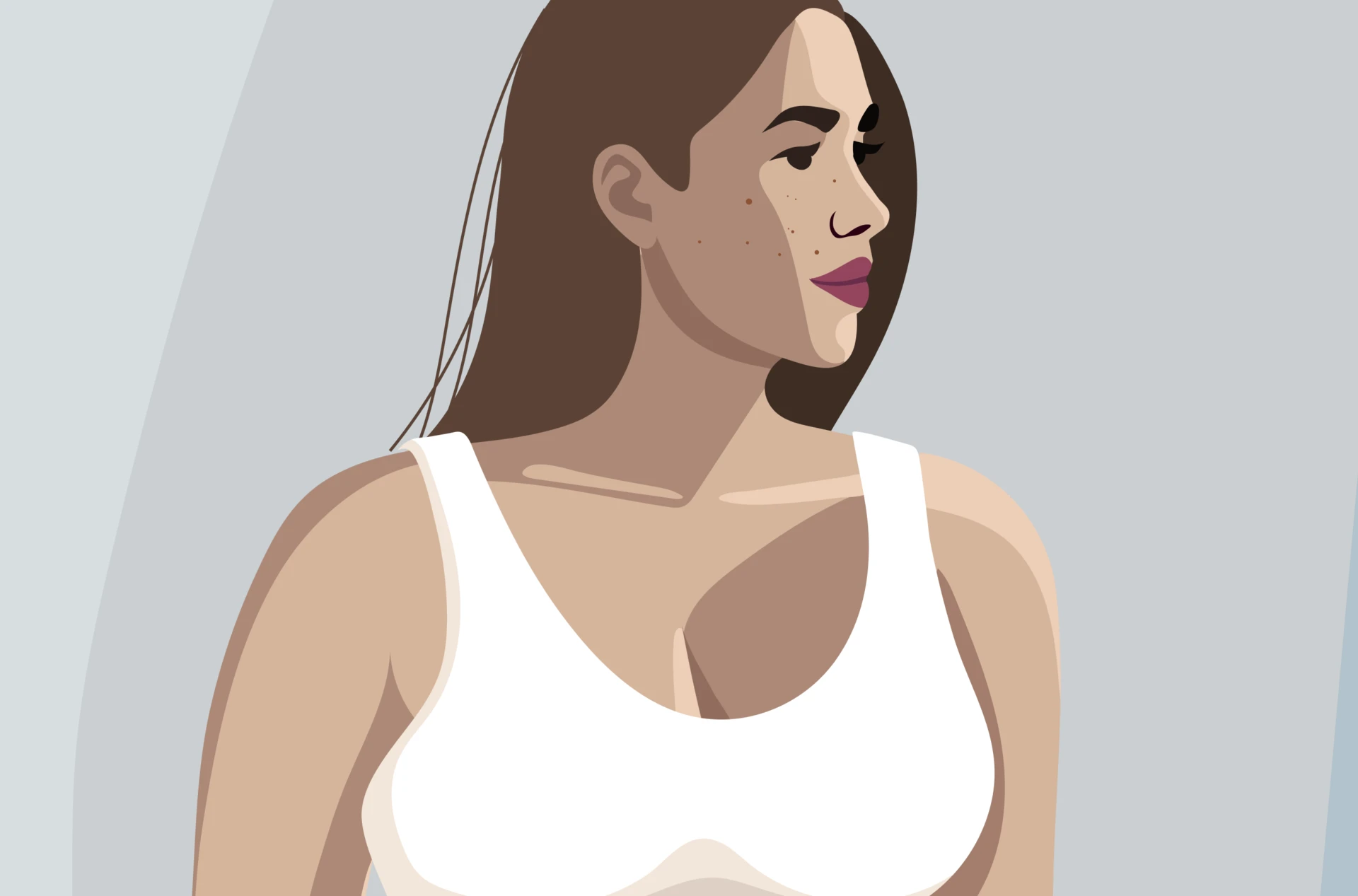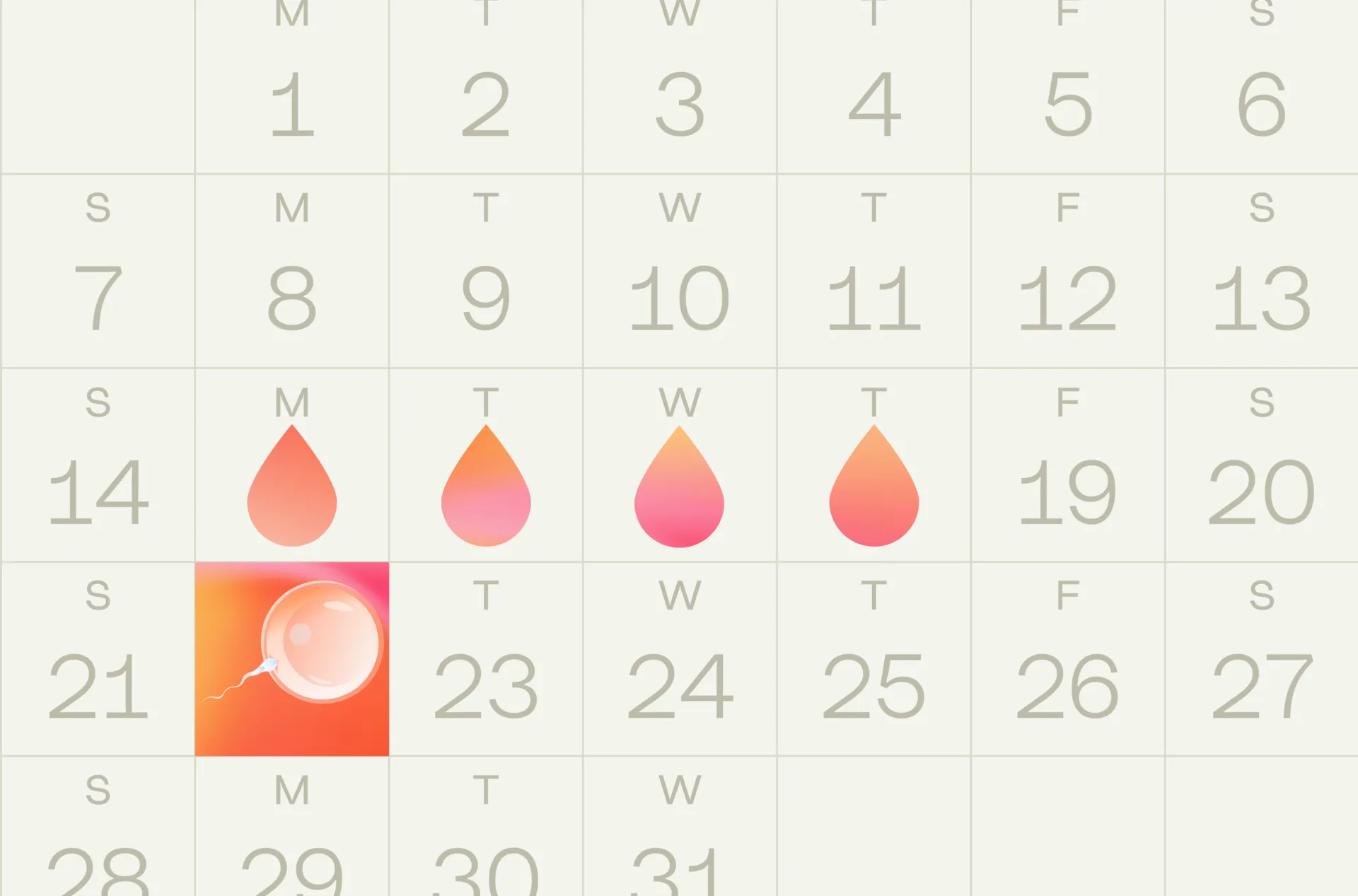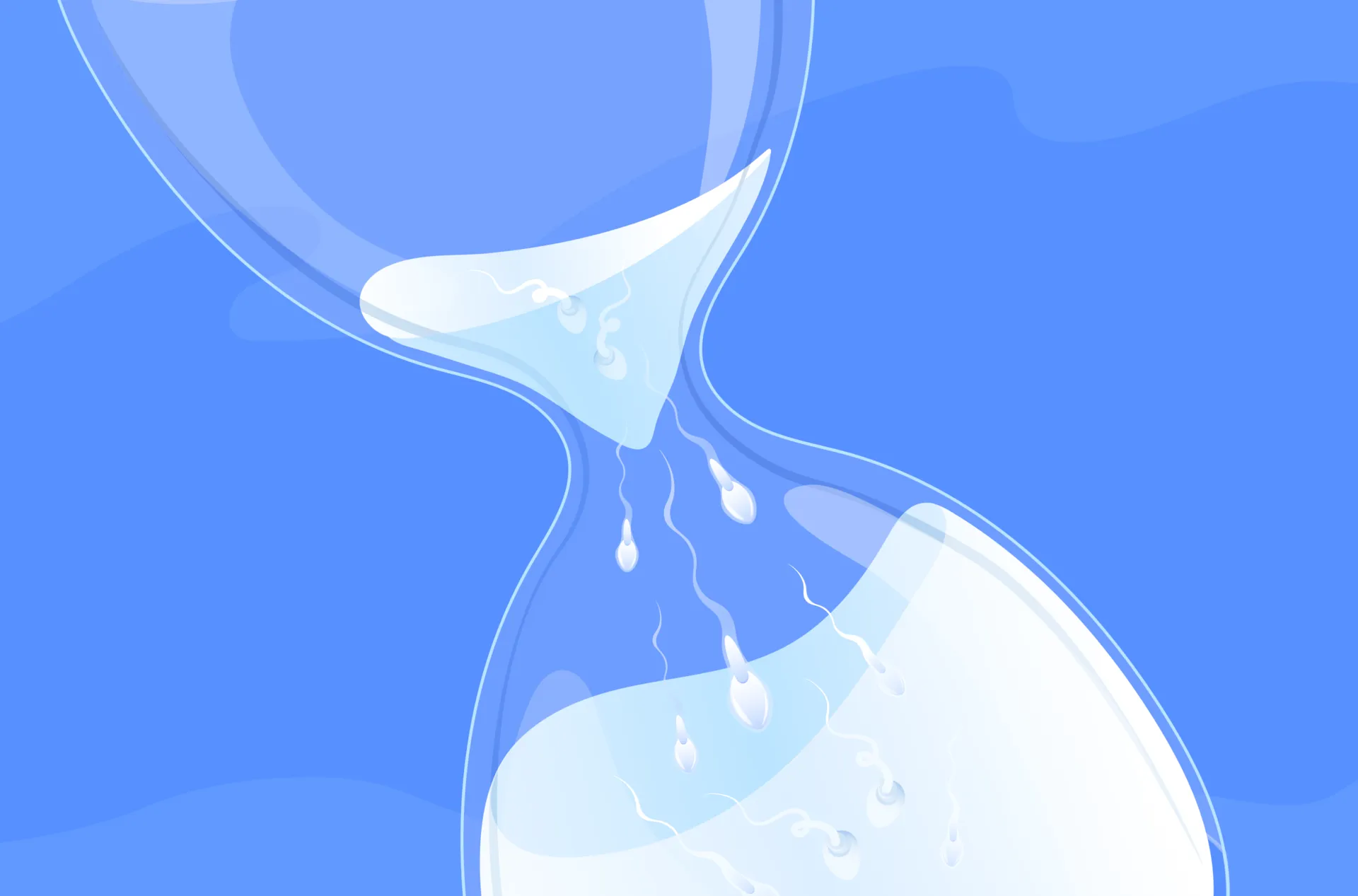Content table
One minute you’re on top of the world feeling great in both body and mind. And the next your mood plummets along with your energy.
That’s ovulation fatigue, and you have hormonal fluctuations to thank for it. Shifts in estrogen and progesterone affect your mood, energy, and bodily symptoms.
Let’s discuss this low energy during ovulation in more detail. We’ll also cover other symptoms you may experience this time of the month.
The goal? To better understand and become more in tune with your cycle so you can manage symptoms and feel your best.
Takeaways
- Ovulation is when your ovary releases an egg. It typically happens 12-14 days before your next period.
- Changes in estrogen and progesterone affect mood, energy, and physical symptoms.
- Ovulation-related fatigue is common in many women due to changing hormones.
- Tiredness around ovulation can be mild or severe.
- This exhaustion can be a result of hormone changes, stress, physical exertion, and sleep disturbances.
- Other symptoms common during ovulation include mood swings, bloating, breast tenderness, and breast pain.
- Ovulation fatigue does not impact fertility directly.
- Extreme ovulation fatigue could mean there’s an underlying issue.
- Exhaustion during ovulation is not a sign of pregnancy. Pregnancy symptoms typically don’t happen until later in the cycle, after implantation.
- You can manage ovulation fatigue by syncing your activities with hormonal changes in your cycle.
- Ovulation fatigue can also be reduced with changes to the diet. Implement more nutrient-rich foods and cut out the processed ones to help boost energy levels.
- Exercising moderately and regularly can also help with fatigue during ovulation.
- Prioritizing sleep and relaxation during specific times in your cycle can help with managing ovulation fatigue.
What is ovulation?
Ovulation marks the mid-point of your menstrual cycle – it happens around 12-14 days before your next period.
Ovulation is kind of a big deal. It’s when the egg is released from the ovary and makes its journey to the fallopian tube. And if you’re TTC (trying to conceive), hopefully sperm is waiting there to fertilize the egg.
If fertilization does happen, pregnancy is the next step. And if the egg doesn’t get fertilized, then your uterine lining sheds, and your period starts.
But what does it mean if you feel tired around the time of ovulation?
What is ovulation fatigue?
Ovulation fatigue is exhaustion during ovulation. For some, it may be a slight difference in energy levels. And for others, it could look like the desire to stay in bed all day.
This tiredness is due to hormonal changes throughout your cycle. Let’s take a deeper look at those shifts
Hormonal fluctuations during your menstrual cycle?
Let’s do a quick recap of the different phases of your cycle.
Initially during your cycle, all your hormones are low. As FSH starts to increase in the follicular phase, it stimulates the follicles to grow. These follicles start producing estrogen, causing estrogen levels to rise. Once estrogen rises, this signals to the brain that the follicles are ready. LH is released as a result. Ovulation happens 24-36 hours after LH starts rising.
Post-ovulation, the ruptured follicle becomes the corpus luteum and secretes progesterone and a bit of estrogen. Peak progesterone levels are reached around 6-8 DPO. Thanks to the progesterone and estrogen levels, the inner uterine lining thickens to prep for implantation.
If fertilization happens, the corpus luteum keeps producing progesterone to support pregnancy.
If fertilization doesn’t happen, the corpus luteum stops producing progesterone, and the inner lining of the uterus sheds, leading to menstruation.
Those hormonal shifts throughout your cycle can lead to changes in your mood. You may feel like the life of the party around ovulation and then crave alone time as you approach your period.
This is normal and it happens because of changes in estrogen and progesterone. And these hormones can affect more than just your mood.
How hormones affect your mood and body?
Estrogen
Estrogen a.k.a the feel-good hormone peaks during ovulation. That’s why you feel like your best self. As your cycle continues, estrogen drops. That brings with it low energy levels and mood swings.
This low estrogen may also lead to decreased serotonin – a naturally occurring brain chemical in charge of mood, sleep, and digestion. This can make you hyper-sensitive to pain and, of course, mood swings.
Progesterone
Progesterone works the opposite way. It picks up speed in your luteal phase and rises after ovulation. This may make your PMS symptoms worse.
You may also find that ovulation makes you tired and nauseous due to these changing hormones. And cramps, bloating, breast pain, and low energy are all normal around ovulation thanks to a decline in estrogen and a boost in progesterone.
| Phase of menstrual cycle | Hormonal changes | Effect on mood |
| Menstrual | Low estrogen, low progesterone | Low mood |
| Follicular | Rising estrogen | Good mood – more energy and confidence |
| Ovulation | Peak estrogen | Great mood – high energy, high libido |
| Luteal | Low estrogen, high progesterone | Low mood – sadness, anxiety, irritability |
Why do you feel tired during ovulation?
| Fatigue theories | Is it normal? | Who is more prone? |
| Hormonal | Yes | Menopausal women – as you age, your estrogen levels decline and cause fatigue |
| Stress | Yes | High-stress people |
| Physical | Yes | People who exercise at this time of their menstrual cycle |
| Sleep changes | Yes | Women of late reproductive age |
Does ovulation fatigue affect fertility?
If ovulation has you worried about fertility, we are here to clear things up.
Low energy during ovulation does not affect fertility. But if your fatigue is severe, it could be a sign of an underlying condition that may be affecting fertility.
If you feel extreme fatigue when ovulating, talk to your healthcare professional. They may run tests to find the cause of this extreme exhaustion during ovulation.
Can tiredness around ovulation be a sign of pregnancy?
Fatigue during ovulation is not a sign of pregnancy.
That’s because ovulation occurs too early to determine pregnancy. Pregnancy officially starts after implantation occurs, which is about 6-12 days past ovulation (DPO).
Early pregnancy symptoms start in the second half of your cycle. Because these happen due to rising progesterone (just like PMS symptoms), it can be hard to tell whether they’re pregnancy symptoms or PMS ones.
The best way to detect the difference is with a pregnancy test.
Until then, there are some things you can do to help manage and even combat fatigue.
How to overcome ovulation fatigue?
Ovulation fatigue can feel like a sudden crash in energy and mood swings. And nobody wants that.
You can combat ovulation fatigue by learning the patterns in your cycle and planning your life around them. This also helps you discover ways to nourish your body with the right food and movement.
Cycle syncing
Cycle syncing is a way to plan your life around your menstrual cycle. Getting in sync with your cycle means understanding how your hormone fluctuations affect your daily life.
At the beginning of your cycle, plan light activities when your hormone levels are low. During your fertile window, you may want to be in front of others while your estrogen levels are peaking. If you experience ovulation fatigue, give yourself permission to take it easy for a day.
Healthy, balanced diet
Throughout your menstrual cycle, your nutritional needs change. During your period, you may need to eat more protein and iron-rich foods to combat fatigue. When you’re ovulating, you may want to incorporate anti-inflammatory foods to support hormonal changes.
Seed cycling is a way to incorporate seeds into your diet to naturally balance hormone levels. During the follicular phase, add flax seeds and pumpkin seeds to your meal. In the luteal phase, add sesame sunflower seeds.
Know more: Diet & Fertility: Eat Your Way to Better Baby Odds!
Regular exercise
Exercise is a natural way to boost serotonin. But remember not to overexert yourself! Intense exercises can exacerbate fatigue.
Consider doing cardio when your energy is high, like the days leading up to ovulation. On ovulation day, you can do yoga or go for a walk to overcome ovulation fatigue.
Ample sleep
Studies show that 7-9 hours of sleep per night is ideal for adults. That may sound like a lot, but it really should be even more if you’re feeling ovulation fatigue. Aim to get extra sleep during that time of your cycle if you’re prone to tiredness during ovulation.
And ensure the sleep you’re getting is high-quality! That means leaving your phone in the other room and putting a halt to your late-night snacks.
Hydration
The importance of hydration isn’t new. But what may be is how it can help with ovulation fatigue. Staying hydrated throughout the day ensures that your body functions as it should. This is key to ovulation (and your entire menstrual cycle) running smoothly.
Know more: The Importance of Hydration When Trying to Get Pregnant
Stress management
If stress is a regular guest in your life, it may be causing ovulation fatigue. Stress can lead to poor sleep quality on a normal day, and ovulation can make it worse. It’s time to get stress under control – your body will thank you in more ways than just a boost in energy levels.
You can manage stress by meditating, spending time in nature, connecting with friends and family, taking care of your body, reducing caffeine intake, and having a good work-life balance.

FAQs
Here are the 7 things you can look out for to help you determine whether you’re ovulating:
- Cervical mucus that is clear, slippery, and sticky
- Increased sex drive
- Spotting
- Cramping
- Bloating
- Mood and appetite changes
- Rise in body temperature
Ovulation fatigue happens due to hormonal shifts. Estrogen and progesterone change a lot during this time, which can have an effect on your energy levels.
Many women find they do well with more sleep while ovulating. This is especially true if you’re prone to ovulation fatigue. Make sure to get 7-9 hours of good-quality sleep during this time.
It is normal to have a higher libido on ovulation day. You may also notice an increase in your vaginal discharge and feel a bit of abdominal pain or bloating.
Was this article helpful?
- The Normal Menstrual Cycle and the Control of Ovulation | NIH
- Serotonin-estrogen interactions: What can we learn from pregnancy? | Science Direct
- Is nausea during ovulation normal? | Inito
- Ovulation pain: what to know about mittelschmerz | Inito
- Is Bloating During Ovulation Normal? | Inito
- Do Breasts Hurt During Ovulation? | Inito
- Menstrual Cycle Effects on Exercise-Induced Fatigability | NIH
- Changes in Sleep Time and Sleep Quality across the Ovulatory Cycle as a Function of Fertility and Partner Attractiveness | NIH
- Sleep, Sleep Disturbance and Fertility in Women | NIH
- Ovulation Symptoms: How Do You Really Know? | Inito
- How Long After Sex Does Implantation Occur? | Inito
- Sleeping hours: what is the ideal number and how does age impact this? | NIH



